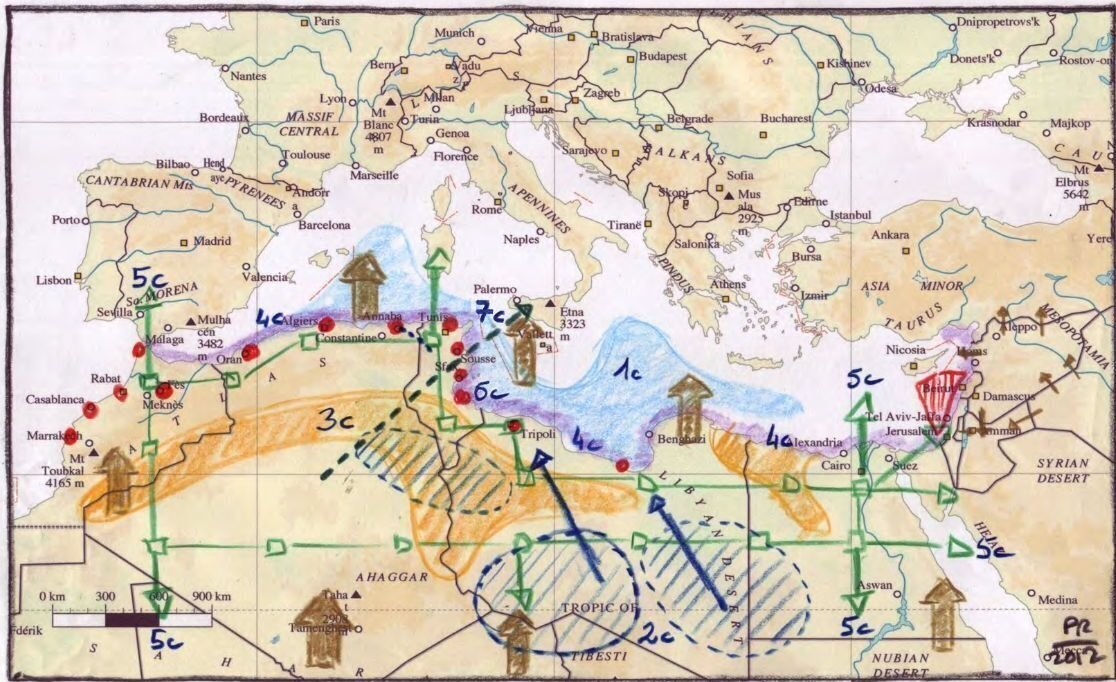ENVIRONMENT AND SECURITY ISSUES IN THE SOUTHERN MEDITERRANEAN REGION

Amman, 18-22 June 2012
The Mediterranean Region has been identified as one of the most vulnerable areas in terms of environment and security linkages. Due to its climatic and topographic features, as well as the cross-boundary dimension of the Mediterranean Basin, intermixed with cultural, political and economic diversity, the region represents an area that poses potential for social and political instability, with repercussions that also affect European countries. Furthermore, energy security is an important element on the political and economic agenda of the Southern Mediterranean countries, who are not only important exporters of oil and natural gas, but have also vast potential with regard to the development of renewable energy sources, thus affecting future energy security policies in the region and beyond.
A Participatory Workshop on Environment and Security Issues in the Southern Mediterranean Region held in Amman, Jordan, 18-22 June 2012. The event was organised by the Office of the Co-ordinator of OSCE Economic and Environmental Activities in cooperation with the Permanent Mission of the Hashemite Kingdom of Jordan to the United Nations and other International Organizations and with the assistance of the Institute for Environmental Security.
The focus of the workshop was on the Southern Mediterranean region and in particular on the OSCE Mediterranean partners for Co-operation: Algeria, Egypt, Israel, Jordan, Morocco and Tunisia.
Key issues explored included:
- Region in Focus - Main Environment and Security challenges
- Water Scarcity and Land Degradation - Identifying the causes and looking for solutions
- Environmental implications of Climate Change
- Environmental implications of Energy and Security
- The role of the Civil Society
The aims of the workshop were to:
- Identify and map existing and especially new environmental issues that may have an impact on security as well as environmental implications of security policies in the region.
- Create wider understanding of the various national, regional and international frameworks and cooperation and coordination mechanisms related to environment and security issues in the region (including among governments, between governmental departments within states, between governments and civil society, between the military and civil society and among civil society organisations).
- Stimulate the OSCE Mediterranean partners for Co-operation dialogue by putting forward ideas and recommendations for increased national, regional and international action and solutions on environment and security issues including with regard to the role of the OSCE.
The workshop was organised also in follow up to the MEDSEC initiative launched in Barcelona in 2009 by the OSCE in cooperation with the Center for International Relations and Development Studies (Fundacio CIDOB) and the Barcelona International Peace Resource Center (BIPRC), UNEP GRID-Arendal and the Zoi Environment Network.
For more information about the MEDSEC initiative, the report of the Barcelona workshop and maps covering specific issues (Agriculture, Desertification, Migration, Population, Resources, Climate Change and Water) view the publication Environment and Security Risks in the Southern Mediterranean Region, published 20 March 2011.